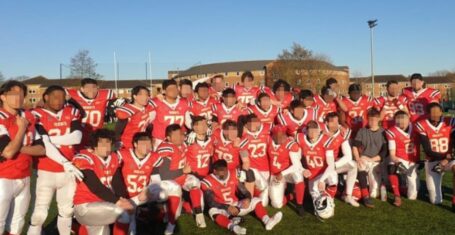
We got a rugby boy to audition for University Challenge
How hard could it be?
I always watch University Challenge with a mix of admiration and envy.
These fresh-faced knowledgeable students have the ability to answer the most arbitrary of questions before Jeremy Paxman has even had a chance to look up from his note cards with his devilish stare.
While Sebastian Turner Bottomworth from Cambridge is confidently telling us the device in the regulator of clocks that causes an intermittent impulse converting rotational motion to oscillatory motion, I’m normally still using a nursery rhyme to remember the order of planets in our solar system.
So when the chance arose, it was a no brainer. KCL needed a team for this year’s series of University Challenge, and I wanted to be part of it.
Pencils at the ready
In reality, the odds of me, a rugby boy, and my average mind making it onto one of the most challenging quiz shows in the history of television was pretty slim, if not impossible.
With that in mind, I decided to go for it with no pressure attached, and take on an experiment of my own – what does it actually take to make it onto the show, and what sort of people would I have to beat in order to do so?
No pressure
Before beginning my extensive revision programme of physical and psychological preparation – a flick through some smart-looking books – I checked out the Facebook page to see what exactly they were looking for.
Primarily it was entirely based on the exam at hand, which would be sat in the Harris lecture theatre in the Hodgkin Building on Guys campus using questions sent by the University Challenge production team.
If I said I wasn’t nervous, I would be lying out of my skin. Not for the questions themselves, but the consequences of the scenarios playing out in my head.
Scenario A) I would nail it. 100 per cent. Pass with flying colours. Millions of people all over the country would be witness to me crying and soiling myself out of fear, Jeremy Paxman and the rest of the contestants cackling as I melted away like the Wicked Witch of the West. Being an undiscovered genius could ruin my life.
Scenario B) I fail. And not just fail, but fail catastrophically. Why don’t I know the entire anthropology of Ancient Greece? How could I be so stupid as to forget the name of the French obstetrician, who gave his name to a method of childbirth involving exercises and breathing control designed to give pain relief without drugs? What’s 49 divided by seven?
Nevertheless, I bravely accepted the challenge, arriving early to get into the minds of the competition – hopefully to steal their abundance of knowledge. To my surprise, the turnout brought I real mixture of people. The ages ranged from 18 all the way up to around 50, from all ranges of societies, courses and accommodations.
If you don’t know, pretend
I tried not to look out of place, but I couldn’t help thinking of fun and imaginative ways to make people nervous and lose focus, asking questions like: “So, how did you find the first exam?” or “So glad I saw ‘quill only’ rule last night!”
This didn’t help my own concentration however, as I saw many a student whip out notepads full of notes as I stood chuckling and talking to myself in the corner.
The nervous crowd
The theatre was dead quiet except for the sound of paper rustling, pencils clinking, and heavy breathing – from me. The questions were going to be read out near the front, as to replicate the live shows, and within the first couple of questions it seemed I wasn’t the only one there hoping for a miracle.
The realisation among some was humorous, but pitiful. Some simply rested their head on the table, while others took to doodling – one girl in front of me drew a picture of a cat for every single question.
Even during the music rounds, the famous pieces from operas I should really know, myself along with many more looked around like we were on an alien planet. It became apparent that others had the same idea as me. Not so much competitive, just curious at how many questions they could actually understand, and maybe answer.
In my case, it wasn’t many.
To hide this, I used up all of my nous in the complex art of pretending you know an answer when you don’t. The over-exaggerated nod followed by serious scribbling.
The pretend counting off imaginary items on your fingers before pulling off the ‘Eureka!’ face to perfection. The very loud ‘tut’ and head roll with a smile, as if they couldn’t have asked an easier question if they tried, and of course, the classic covering of your work to the person next to you, insinuating that they keep copying your brilliant answers.
All of this killed a lot of time, and cracked myself up on a few occasions to people’s reactions. Some didn’t care. Some would be frustrated with my loud noises and body language. The best however, were those who genuinely thought I was flying through the questions, and wondering just how I was this clever, with an unforgettable face of amazement.
Alas (guess where I heard this word), it wasn’t meant to be. A quick reflection of my answer paper showed a few guesses, some outrageous claims, and some creative doodles that I should at least get some credit for.
Despite this, I didn’t just come out still confused by the ratio of the speed of a fluid to the speed of sound, but actually appreciating a few things.
Firstly, there are things that I will never know or understand.
Secondly, the students who do know and understand these questions should be applauded, and cheered on when representing King’s.
Thirdly, I don’t care what anyone says. The nursery rhyme for remembering the planets is useful, easy to remember, and rather catchy too.
Jordan is still waiting to find out if he’s made the team.









































